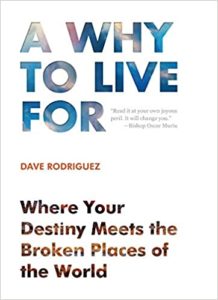How many times a week do you have to apologize? How many regrets do you wrestle with?
Some examples:
I’m sorry I’m late!
I’m sorry I didn’t get that done in time.
I wish I had more time to talk, but I’ve gotta run.
I’m sorry, I really need to take this call.
Wow, did I really just spend an hour scrolling Tik Tok (IG, FB, Twitter)?
Ugh…I forgot another appointment.
I’m sorry honey, I can’t make your game again this week.
I’ve been meaning to call you…sorry.
Why did I say yes to this?
Pay attention to the piled-up regrets, apologies and rolled eyes among your family and friends. They are signs of a very disordered world.
An ordered life is one with a healthy work/life balance. An ordered life is one that is organized. It is a life capable of being present and attentive with the people and things that matter. It is a life characterized by uninterrupted times of “flow” – when you are absorbed with important things and able to focus. And an ordered life is one that experiences regular times of rest.
Feeling uncomfortable now? You’re not alone. Our entire culture is disordered.
- We touch our phones 2617 times every 24 hours.
- The average screen time per day for the average American is 3 hours and 15 minutes.
- “It is a myth to think that we can multi-task and think of multiple things at one time. When people think they’re doing several things at once, they’re actually juggling. They’re switching back and forth. They are reconfiguring their brain moment to moment, task to task, and that comes with a cost.” Professor Earl Miller, MIT
- Most office workers never get an hour to themselves without being interrupted.
- “We are living in an attentional pathogenic culture – an environment in which sustained and deep focus is extremely hard for all of us.” Dr. Joel Nigg, Oregon Health and Science University”
- 40% of Americans are chronically sleep deprived, getting less than the necessary minimum of seven hours a night. Since 1942, the average amount of time a person sleeps has been slashed by an hour every night.
- “57% of Americans now do not read a single book in a typical year. The proportion of Americans who read books for pleasure is now at its lowest level ever recorded.”
A number of those stats and insights come from a book I’d recommend to you. Stolen Focus: Why You Can’t Pay Attention – and How to Think Deeply Again by Johann Hari.
Let me paint another picture of a person whose life is disordered. Let’s say two people are sitting across from each other in a coffee shop. One of them struggles to stay focused on the person across the table. The body language of the disengaged person clearly says, “I’m ready to go at any moment.” It’s like they have one foot out the door. Their eyes dart back and forth and rarely lock on the eyes of the person sitting with them. Their head swivels to see who just walked in and who’s leaving. They fidget and occasionally take a glance at their smartphone, which is sitting face up and is not muted. You can see their texts and hear the incoming alerts. They might even take a call or respond to a text message. Clearly, they’re not listening to anything their companion is saying. You can assume that they are thinking ahead or reviewing what just happened prior to their arrival at the coffee shop. And you can be certain that they will not remember much of what their friend tells them.
In his book, Hari suggests that “we are increasingly speed-reading life, skimming hurriedly from one thing to another, absorbing less and less.” He goes on to state that as a result of our disordered lives “…we are slower and we are stupider. We are less creative. We make more mistakes. And we are experiencing diminished memory.”
I would add that our disordered lives cause us to be shallow, messy, ineffective and insufferable, not to mention unhappy.
Best we take a long hard look the order of things in our world.
Assess of the Order of Your World
Are you generally on time, or always running late?
Are you able to complete assignments in a timely manner?
Does life feel out of control?
Are your spaces cluttered?
Are you able to be present with the people of your life?
Can you rest?
Do you keep an up-to-date to-do list?
Do you keep an up-to-date calendar?
When you begin your day, do you know what needs to be done or do you wing it?
Is the state of your home such that you feel comfortable inviting someone over?
Is there balance between your work and the rest of your life?
Do you do few things and do them well?
Do you have goals, and do you pursue them?
How many uninterrupted minutes do you get in a day?
How much time do you have to dream and imagine possibilities?
How much time do you spend on social media, internet surfing or gaming?
Now Dream
Now that you’ve honestly assessed the state of order and focus of your life, what do you wish it could look like? Think best case scenario. What do you want? Imagine yourself at rest. Picture a world in which you get in the flow frequently. Can you see yourself present and engaged with those you care about? Can you imagine life not besieged by social media? Now, write out a dream…a small paragraph that captures your greatest longings for rest, focus and order. Don’t over think this; just emote.
Set a Few Goals
Now, armed with your dream, create a few (no more than three) specific, measurable goals that, if pursued, could very well help your dream become reality. Here are a few examples:
Cut social media engagement by 75%.
Declutter your office and car.
Get 8 hours of sleep every day.
Make your bed every day.
Do no work after 5:00.
Practice New Habits
With your dream firmly in your mind and your goals in front of you, identify some regular, very practical practices you can commit to over the next three months that will help you achieve your goals. Here are a few examples:
Mute and put away your phone when meeting with people.
Practice 15 minutes of meditation or prayer every day.
Be present with everyone you meet.
Be on time or early to every meeting.
Remember, this is not meant to be a complicated strategic plan. It is meant to be doable. You have to get a few wins to move the needle on your well-being.
Dreams + Goals + Habits
Here’s a quick review (along with links) of where we have been and where we are going in this well-being series. There are six life factors that have a bearing on our happiness and contentment and that shape our self-worth.
- The order and focus of our life
- Our relationships
- Our mental and emotional health
- Our Finances
Still to come:
- Our physical health
- Our sense of purpose
The response to this simple well-being assessment has been so positive. Thank you!
Here’s something to consider. Would it benefit you to sit down with me (same room or Zoom) and have me walk you through this assessment and goal setting process? Or would you like to gather some family, friends or co-workers and all meet with me to do this together? I’d be happy to do either with you!
I’ve led Well-being and Destiny Workshops with many groups and organizations around the country. These workshops have not only led to significant life change but have given the participants a new vocabulary of engagement with each other. Well worth the investment!
My friend, I wish for you peace and order and rest.




0 Comments